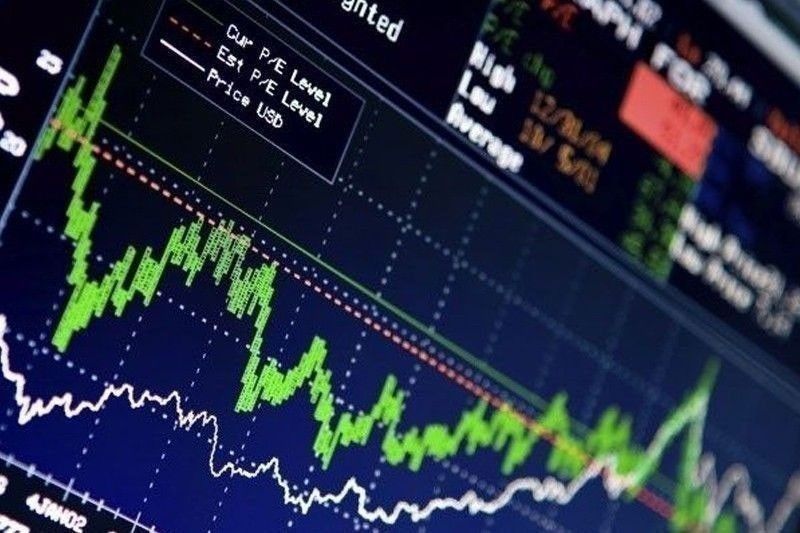More twists, turns await stock market next year

MANILA, Philippines — While threats and uncertainties abound, prospects for the Philippine stock market remain upbeat for next year after a 2024 filled with twists and turns.
The local market kicked off 2024 relatively strong, starting the year at the 6,500 level, then slowly climbing its way above the 6,900 level until the early part of April.
However, things went downhill from there as the benchmark index reached a 2024-low of 6,158.48 on June 21.
The market eventually regained its footing and touched the 7,000-mark for the first time for the year with a 7,024.67 finish on Sept. 12.
It stayed resilient and managed to stay above the 7,000 level until the early part of November, with the Philippine Stock Exchange index (PSEi) reaching its highest level not only for 2024 but also in almost five years at 7,554.68 on Oct. 7.
China Bank Capital Corp. managing director Juan Paolo Colet said 2024 was another rollercoaster ride for the local stock market.
“We had two significant rallies that fizzled out. The rally in the first quarter gave way to a steep selloff as the (US) Federal Reserve delayed its interest rate cutting cycle and geopolitical tensions flared in the Middle East,” Colet said.
“Then the second rally from late June to early October was mostly wiped out by the reelection of Donald Trump in the US,” he said.
Colet said that 2025 presents a complicated picture for the local market.
“While we remain positive about the growth prospects of the Philippine economy and the earnings strength of many listed companies, we approach 2025 with caution as there is a lot of uncertainty around Trump 2.0,” he said.
“Just like his first term, we expect that Trump’s social media posts will again move markets, so investors should be ready to manage that volatility,” he said.
Colet said there is also a risk that US Fed policy rate cuts could undershoot current expectations or pause altogether, which could limit the Bangko Sentral ng Pilipinas’ legroom to loosen domestic monetary policy.
He said the impact of potential natural disasters on economic growth is also something that investors must watch out for.
Colet said his conservative 2025 target for the PSEi is at 7,600.
Financial services provider Unicapital Group, on its end, has set its PSEi target for next year at 8,000.
According to Unicapital, further rate cuts by the central bank are expected to support corporate profitability, potentially driving growth in key sectors such as conglomerates, consumer, energy, REITs and property.
“Despite the potential risks associated with the new US administration’s policies, we remain optimistic about the opportunities for the Philippines,” Unicapital said.
Unicapital expects the CREATE MORE law to provide a favorable boost to the Philippine equity market by improving the overall financial incentives.
“The law’s incentives, including tax reductions and increased foreign ownership limits, are likely to drive both domestic and foreign capital inflows, particularly into sectors poised for growth. These measures should enhance corporate profitability and operational efficiency, which could translate to stronger earnings growth for listed companies,” Unicapital said.
“As investor sentiment improves and businesses capitalize on the new incentives, we anticipate increased market liquidity and an upward pressure on valuations,” it said.
Meanwhile, downside risks seen by the group include prolonged elevated interest rates as well as escalation of geopolitical tensions disrupting trade supply.
BDO Capital & Investment Corp. president Eduardo Francisco is also keeping an optimistic outlook on the market’s trajectory for next year.
However, he said that the peso has to be stable otherwise, foreign investors will not come in.
“I am still hopeful. The Trump victory is still too early to tell because we cannot see the changes yet,” Francisco said.
Analysts believe that the Trump presidency would have an ever bigger impact, either positively or negatively, to the local market starting 2025.
But with its appeal supported by the country’s significant economic growth potential, strong consumer sector and remittance flows, the Philippines is currently regarded as an increasingly attractive market for investors looking for opportunities in emerging markets with dynamic economies.
The ASEAN Exchanges, a collaboration among the exchanges in Southeast Asian countries, said that the Philippine stock market, in particular, is catching notable interest as investors are increasingly turning their attention back to markets in Southeast Asia.
Efforts are also being undertaken by the PSE to make investing more accessible, such as leveraging technology.
“By integrating with the GCash app through its partner broker, PSE has simplified the process for retail investors to enter the market,” the ASEAN Exchanges said.
“The exchange is also working to reduce transaction costs and connect foreign institutional investors with local listed companies through dedicated events,” it said.
For 2025, the PSE expects capital raising activities to further pick up and hit P120 billion from this year’s P79 billion.
The PSE is also hoping to see more companies going public in 2025, with six initial public offerings (IPOs) eyed from only three this year.
PSE president and CEO Ramon Monzon said high interest rates and market volatility prompted companies to opt out of raising capital from the equities market in the last few months of the year.
“We recognize the need to increase liquidity in the stock market. To this end, we are continuously working to introduce various products to attract more investors,” Monzon said.
- Latest
- Trending




























